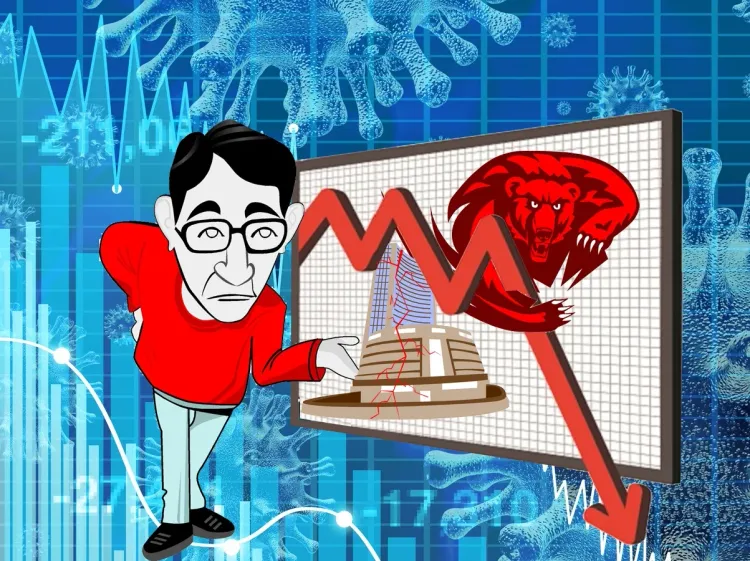Why Did the Indian Stock Market Close Lower Amid Selling in Banking and IT Sectors?

Synopsis
Key Takeaways
- Market closed lower amid selling pressure.
- Disappointing Q1 earnings impacted investor sentiment.
- Axis Bank and HDFC Bank were major contributors to declines.
- Investors should focus on stock selection.
- Rupee under pressure due to rising crude prices.
Mumbai, July 18 (NationPress) The Indian stock market concluded the day on a negative note on Friday, driven by selling pressure in banking stocks and the overall market. This decline followed disappointing Q1 earnings from the finance and IT sectors. Furthermore, persistent FII outflows due to concerns over trade agreements have contributed to the downward trend.
The Sensex closed at 81,757.73, down 501.51 points or 0.61 percent from the previous day's close of 82,259.24. The 30-share index opened negatively at 82,193.62 and further dropped to an intra-day low of 81,608.13 due to selling pressure on major banking stocks like Axis Bank, HDFC Bank, and Kotak Bank.
The Nifty index finished at 24,968.40, down 143.05 points or 0.57 percent.
Vinod Nair, Head of Research at Geojit Investments Limited, stated, “A widespread sell-off was noted in the national market, amidst disappointing early earnings from the finance and IT sectors.”
“High valuations in large-cap stocks, combined with substantial net short positions held by FIIs, have led to a cautious investor sentiment,” he added.
Among the Sensex stocks, Axis Bank, BEL, Kotak Bank, HDFC Bank, Bharti Airtel, Titan, Eternal, Tech Mahindra, and Asian Paints were the biggest losers. Conversely, Bajaj Finance, Tata Steel, ICICI Bank, and HCL managed to stay in positive territory.
In the Nifty50 index, 33 stocks saw declines while 17 experienced gains.
All broader indices ended the session in the red due to selling pressure. Nifty Next 50 dropped 486 points, Nifty Midcap 100 fell 414 points, and Nifty Smallcap 100 decreased by 157 points.
Sectoral indices followed suit, with Nifty Bank falling nearly 1 percent or 545 points, Nifty FMCG down 336 points, and Nifty Fin Services down 253 points. Meanwhile, Nifty IT remained flat.
The rupee traded lower by 0.07 percent as crude prices continued to rise, putting additional pressure on the domestic currency.
Experts noted that the negative sentiment in capital markets further burdened the rupee, while positive signals from the dollar index kept it under persistent pressure.
Moreover, looming tariff threats are casting doubts over India's trade relations with Russia.
Analysts recommend avoiding aggressive directional trades and suggest adopting a hedged strategy focused on stock selection based on earnings performance.










